Monday, 1 February 2010
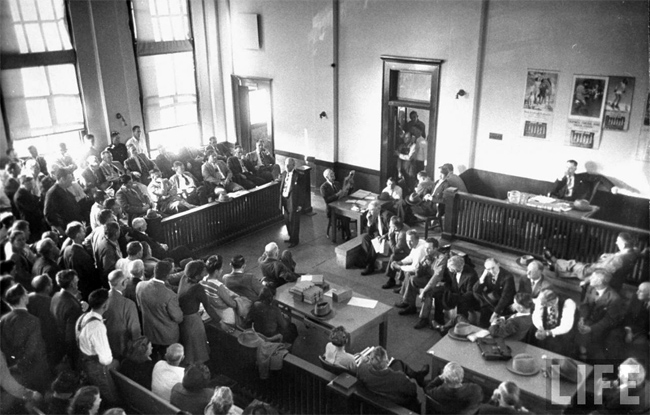
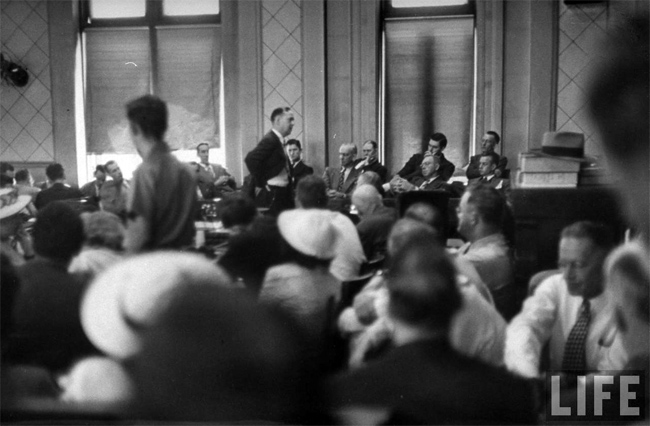
Amy Mallard was probably as unpopular in Toombs County as her husband Robert Mallard had been before he was lynched. The lynching had caused a lot of trouble… [Mallard] had been a “real uppity nigger” — some said he even wanted to be called mister — and most of Toombs County thought he’d gotten just what he deserved… Then a man named Joseph Goldwasser, who owns a department store in a Negro district in Cleveland, offered to help her. Between them and some other folks they got two Toombs County white men (William Howell, pictured below, and Roderick Clifton) indicted for the murder.
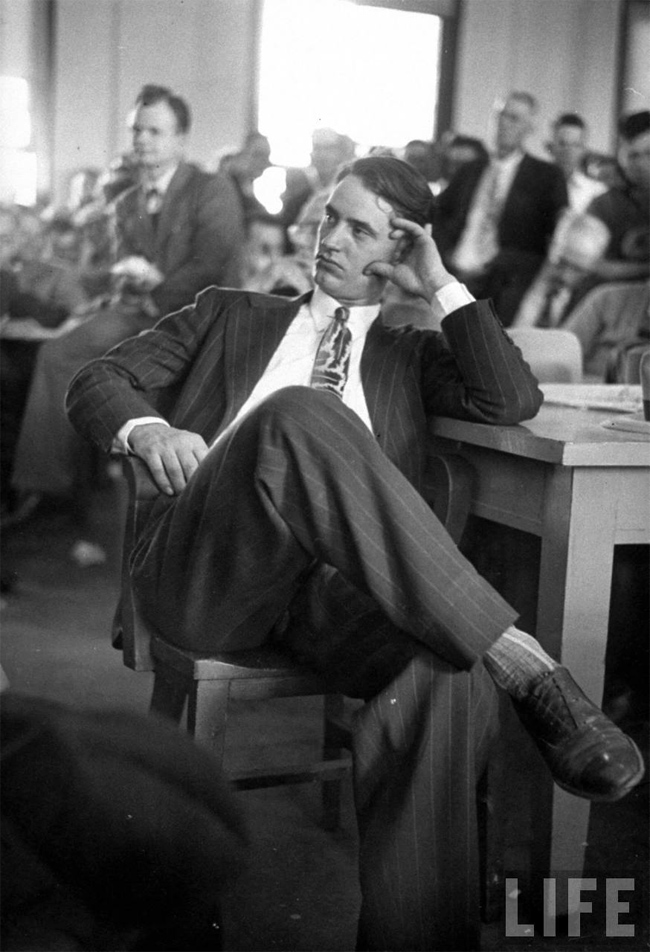
There was a little stir when people saw Goldwasser come in — him a white man — holding Amy’s arm, and carrying Amy’s baby. One farmer couldn’t help saying out loud: “Don’t that make you sick?”
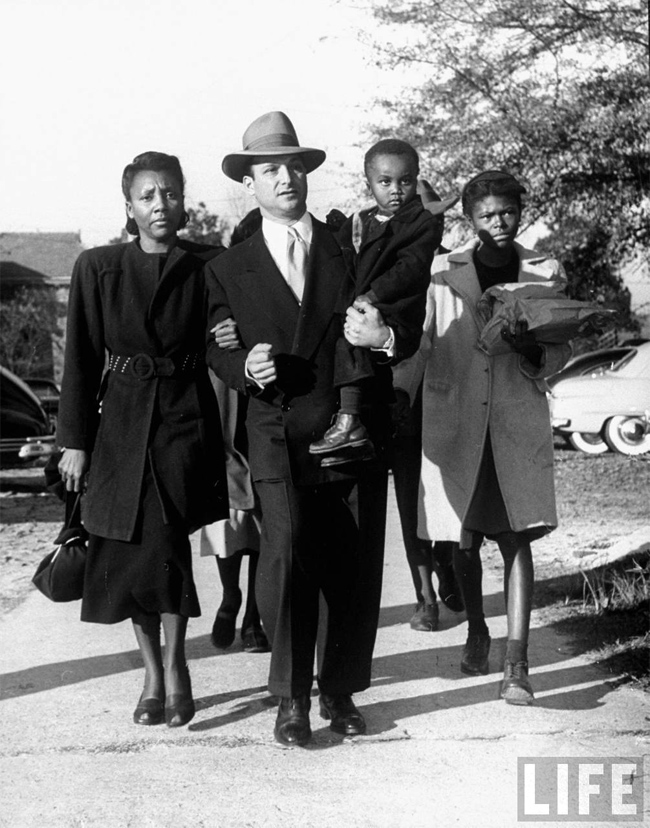
Amy was put on the stand… Her attorney asked if she had recognized anyone. “Yes,” she said, “William Spud Howell.” [Howell] just smiled. But when Amy told how [her husband] got shot she went to pieces. She yelled, “Oh Lawdy, Oh murder. They killed him.” She got down on her knees, screamed, “I see ‘em. I see ‘em. Oh Lord—why did they murder him?” A lot of people in the audience couldn’t help laughing.
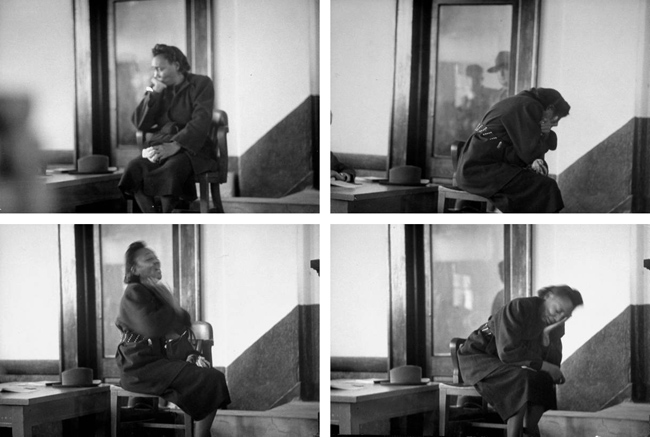
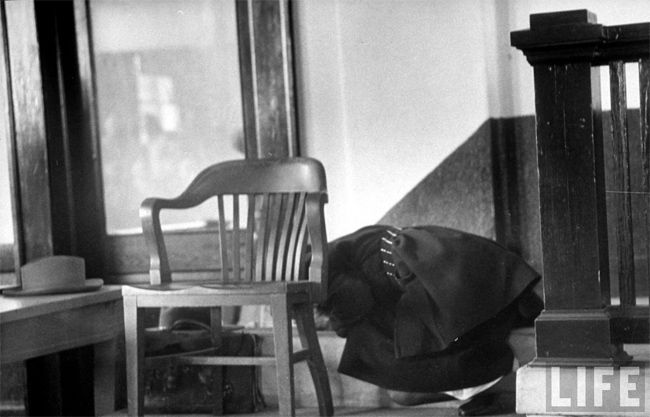
[Then], Howell’s attorney, T. Ross Sharpe, called two of the jurors down out of the box to be witnesses. Though both had sworn they were “impartial” before being seated on the jury, they each said they considered Amy’s reputation “bad” and would not believe what she said, even under oath.
That just about did it. The jury went out, came back in 26 minutes and pronounced Howell not guilty. The prosecution decided not to press charges against the second defendant.
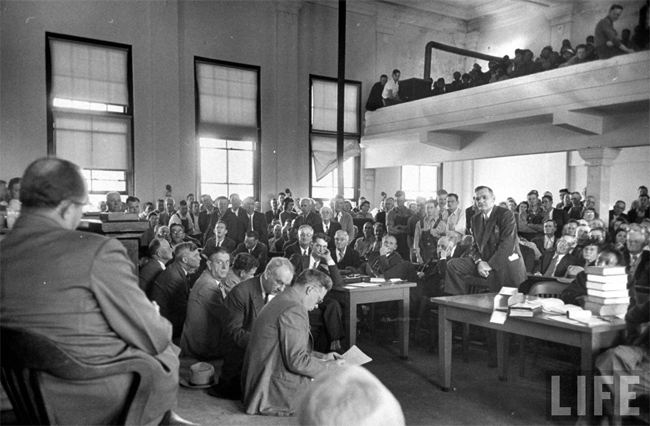
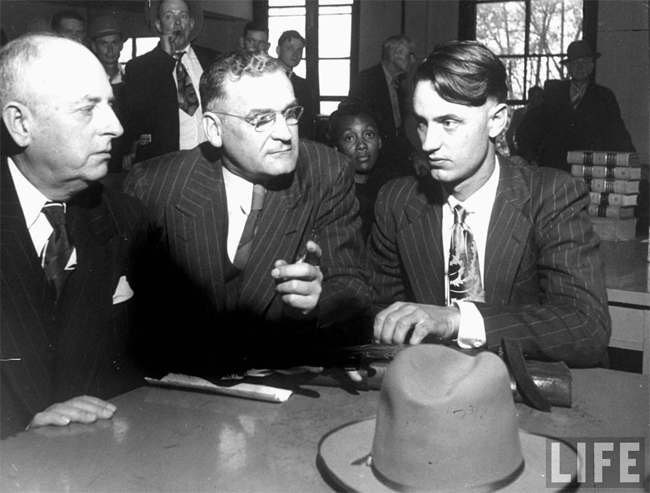
Article sourced from Time Magazine, dated January 24, 1949. Images sourced from Life Magazine. Dedicated to all lynch victims and their families and descendants.
Tags: History
Posted in Uncategorized | No Comments »
Friday, 29 January 2010
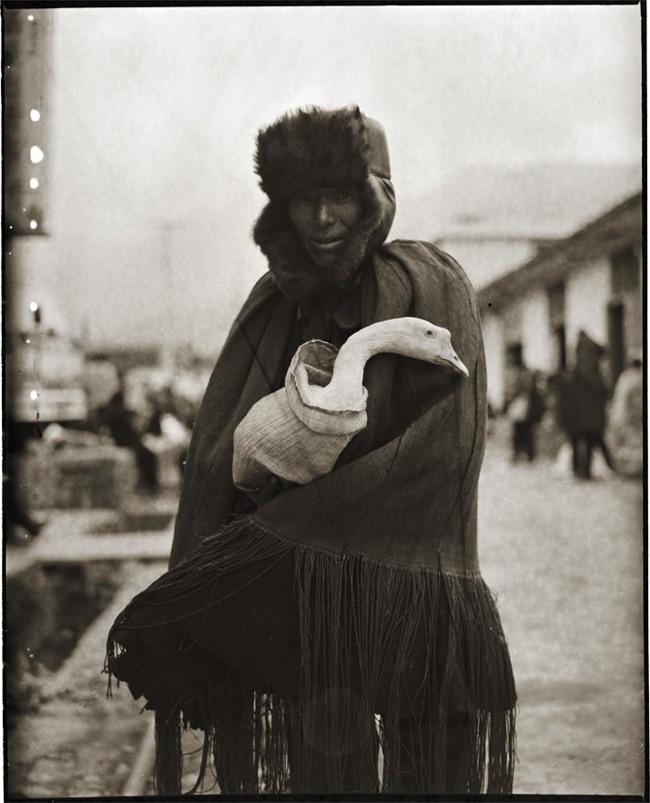
Every now and again, my parents relate their childhood experiences to me. They lived in a remote village in Malaysia. Farmers by trade, my grandparents relied on their offspring to manage the household and occasionally plough the fields. Financially humble, my grandparents had no access to modern amenities and tools we take for granted today. Firewood stoves were lit to prepare every meal, leftover food was reheated after dinner and stored in stark pantries, soaps were hand-made with organic compounds… Old newspapers were even used as substitutes for feminine products! Such is the simple yet tough life of days long gone…
And these are the times I realise I was indeed born with a silver spoon in my mouth…
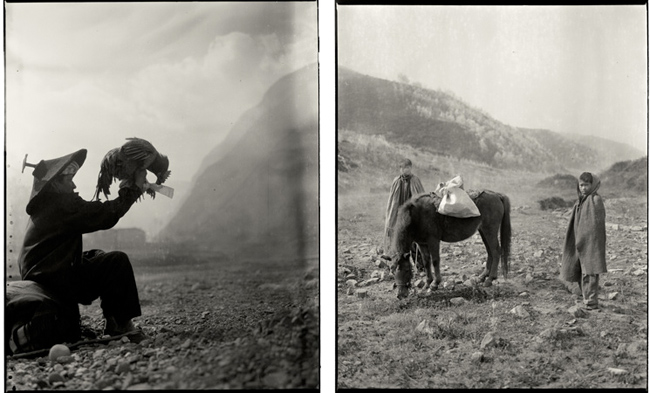
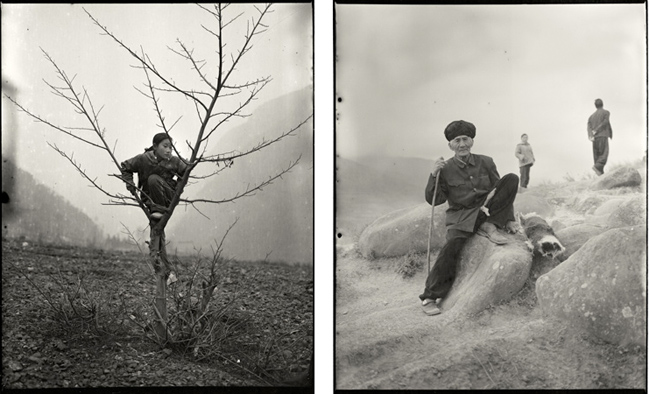
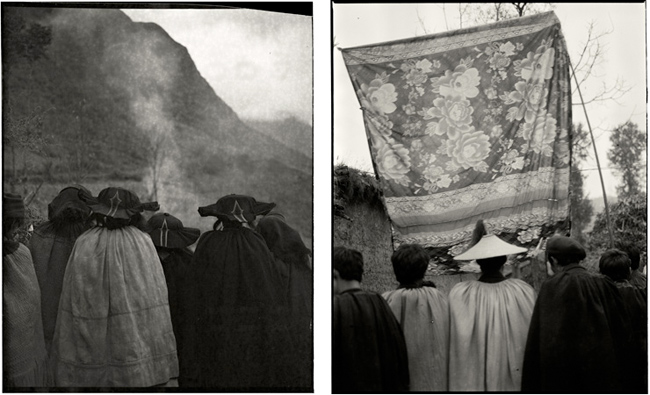
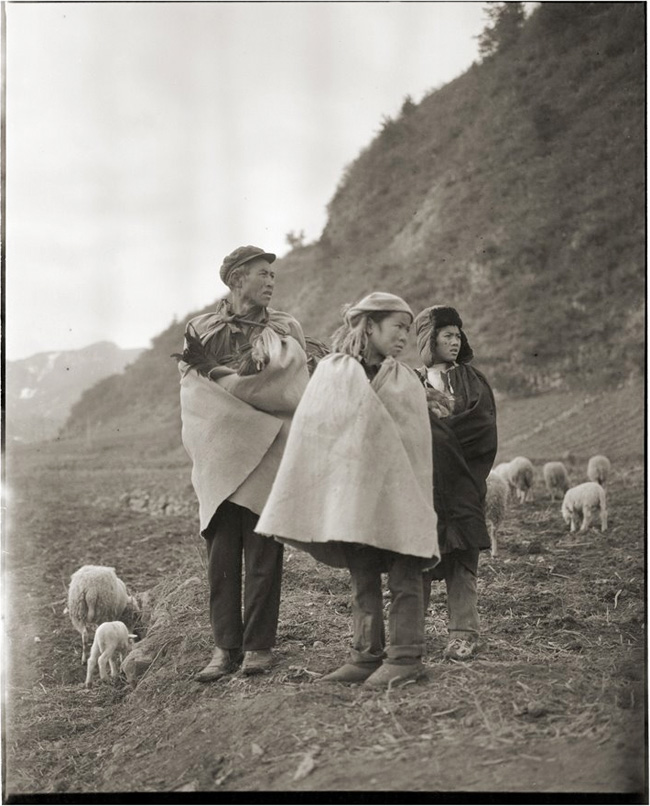
View more of Adou’s work here.
Tags: China, Photography
Posted in Uncategorized | 1 Comment »
Wednesday, 27 January 2010
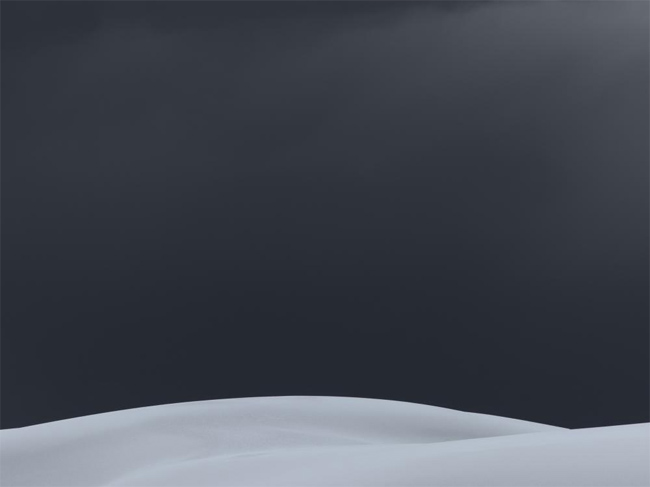
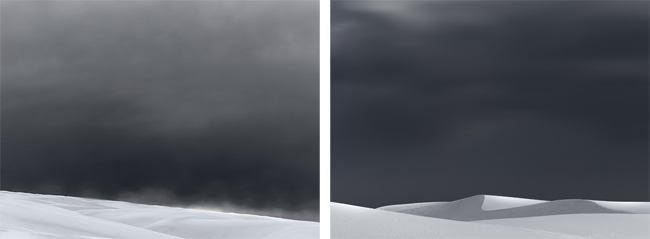
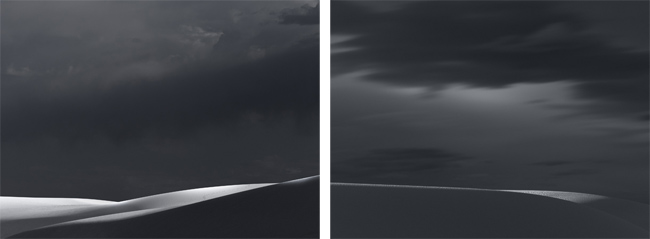
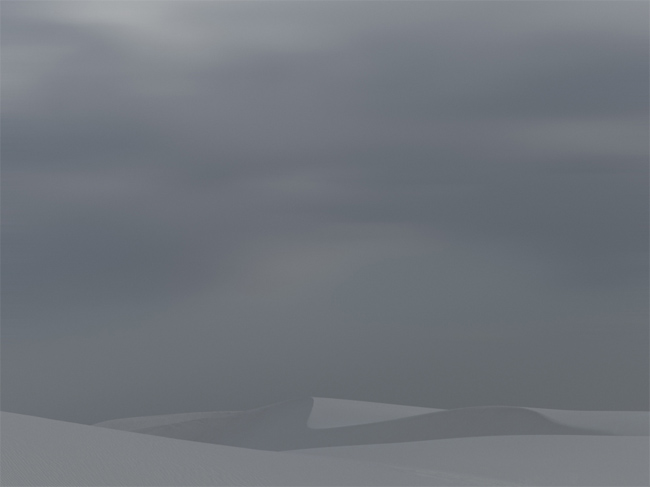
The American southwest desert environment is a total ecosystem that is extremely fragile, easily scarred, and slowly healed… and its resources, including certain rare and endangered species of wildlife, plants, and fishes, and numerous archeological and historic sites, are seriously threatened by air pollution, inadequate Federal management authority, and pressures of increased use, particularly recreational use, which are certain to intensify because of the rapidly growing population of the American southwest. My documentation of these remarkable deserts continues in an effort to influence preservation through public awareness, opinion and action.
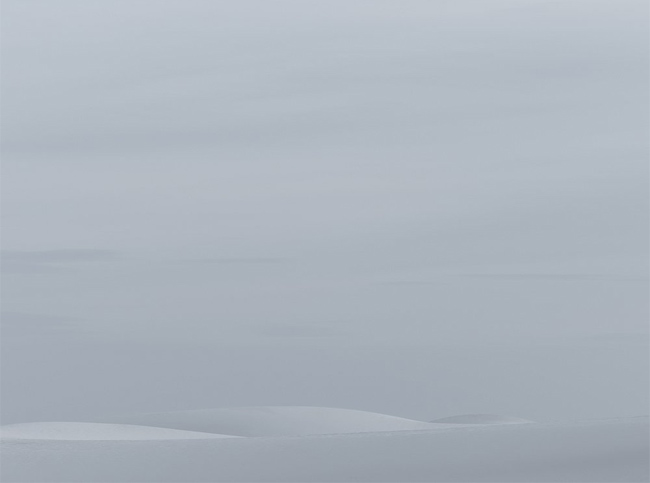
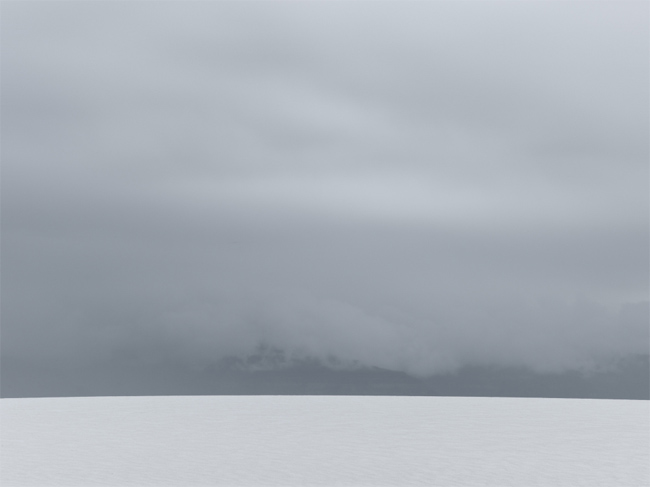
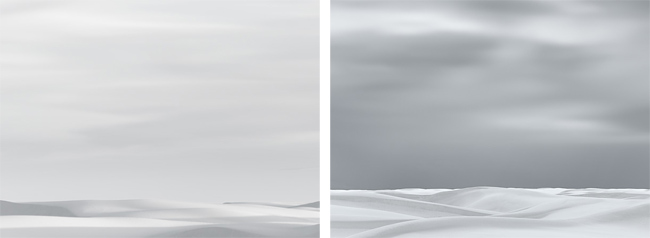
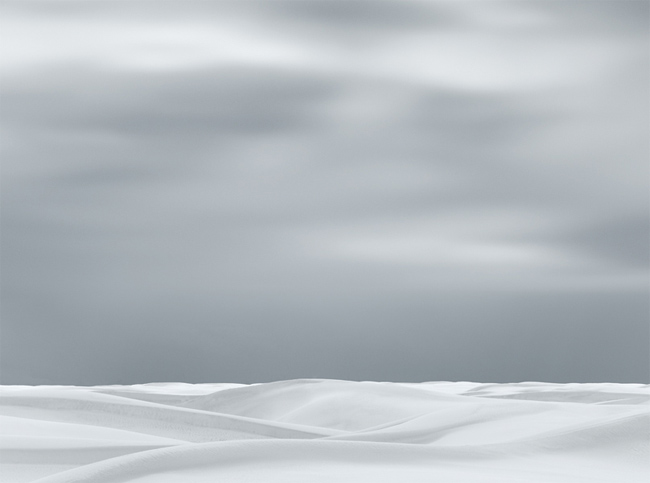
We live in an era of environmental awareness. It is also an era of the image. Both can coexist to give us a sharper picture of the use and abuse of our deep oceans and beloved terra firma, which is far more at risk than we admit or know. Both image and meaning coincide in [Zimmerman's] imagery… In his sensuous sharp focus, we become more aware of where we are as humans in the drifting sands of time.
Additional text by Bruce Davidson. Please visit David Zimmerman’s site to view more of his photographs.
Tags: Photography
Posted in Uncategorized | No Comments »
Tuesday, 26 January 2010
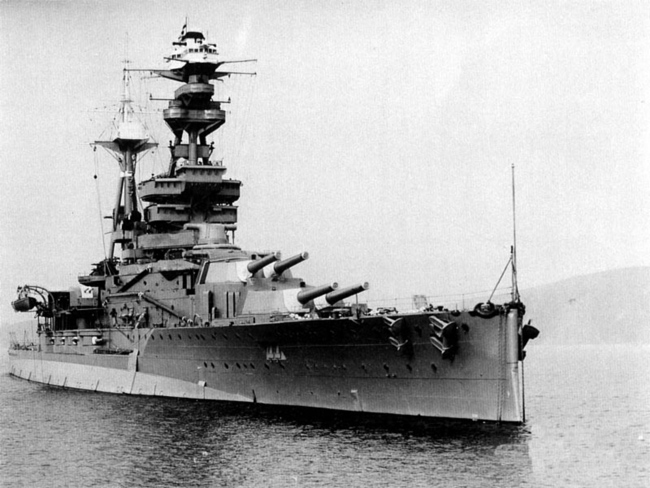
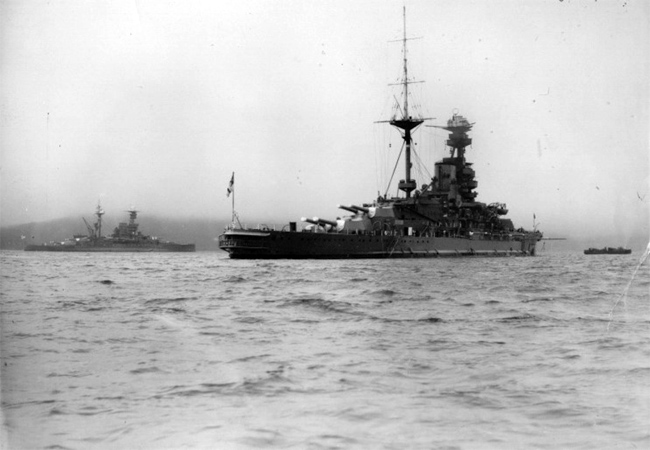
HMS Royal Oak was a Revenge-class battleship of the British Royal Navy, torpedoed at anchor by the German submarine U-47 on 14 October 1939. Launched in 1914 and completed in 1916, Royal Oak first saw action at the Battle of Jutland. In peacetime, she served in the Atlantic, Home and Mediterranean fleets, coming under accidental attack on more than one occasion.
Royal Oak was anchored at Scapa Flow in Orkney, Scotland when she became the first of the five Royal Navy battleships and battle cruisers sunk in the Second World War. The loss of life was heavy: of Royal Oak’s complement of 1,234 men and boys, 833 were killed that night or died later of their wounds.
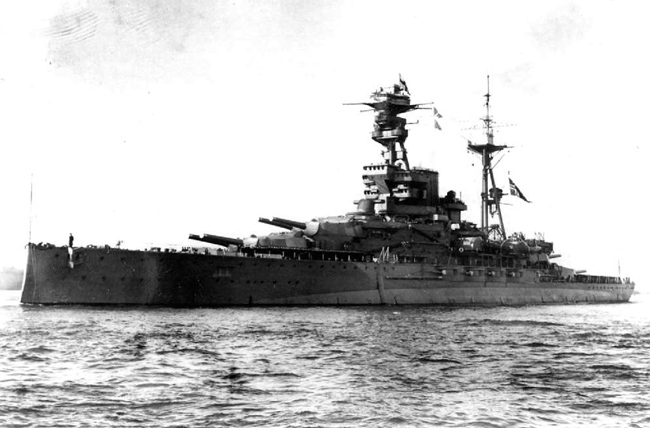
The numerical superiority enjoyed by the British navy and its Allies meant that the loss of the veteran of the First World War made little difference to the naval balance of power, but the effect on wartime morale was considerable. The raid made an immediate celebrity and war hero out of the U-boat commander, Günther Prien, who became the first Kriegsmarine submarine officer to be awarded the Knight’s Cross of the Iron Cross. To the British, the raid demonstrated that the Germans were capable of bringing the naval war to their home waters, and the shock resulted in rapidly arranged changes to dockland security.
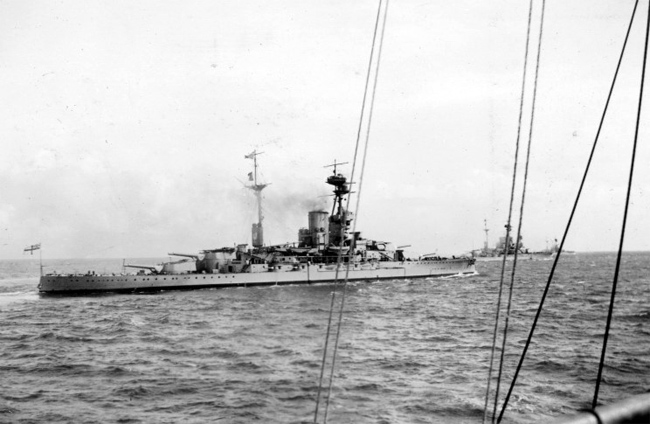
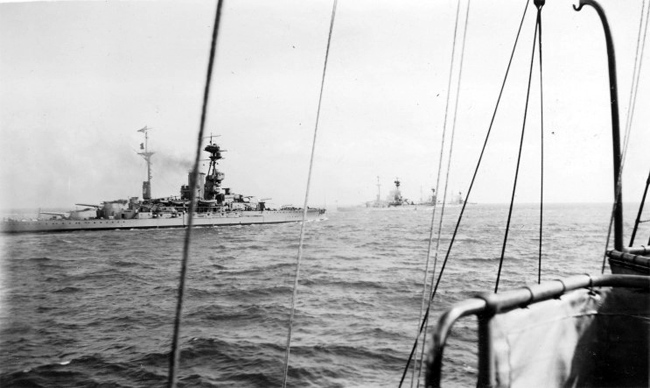
For more information, please visit HMS Royal Roak. Dedicated to the 833 men who lost their lives.
Tags: History, Tribute
Posted in Uncategorized | No Comments »
Monday, 25 January 2010
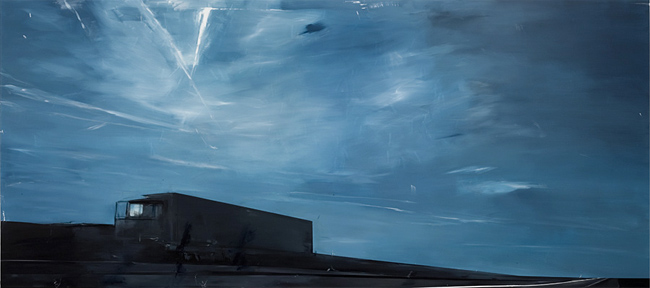
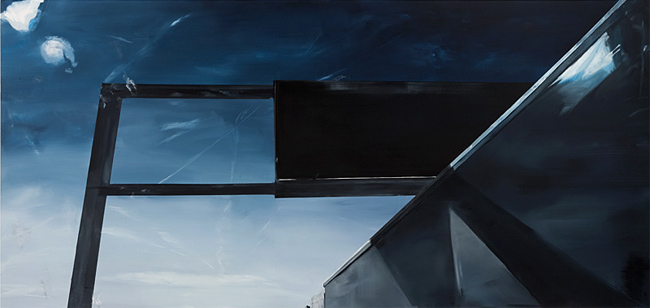
Driving is a spectacular form of amnesia. Everything is to be discovered, everything is to be obliterated. Admittedly, there is the primal shock of the deserts and the dazzle of California, but when this is gone the secondary brilliance of the journey begins, that of the excessive, pitiless distance, the infinity of anonymous faces and distances, or of certain miraculous geological formations, which ultimately testify to no human will, while keeping intact an image of upheaval.
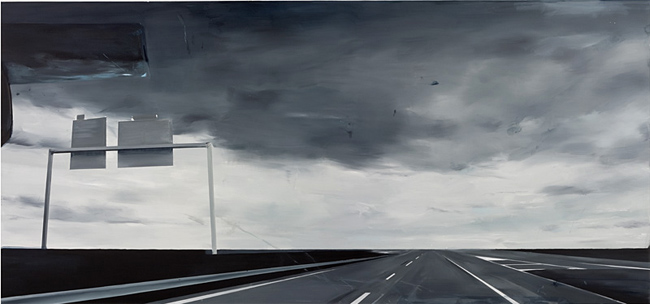
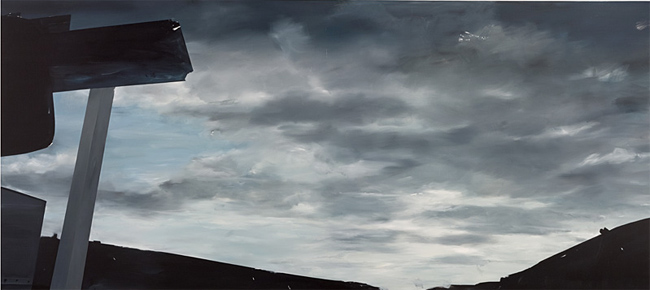
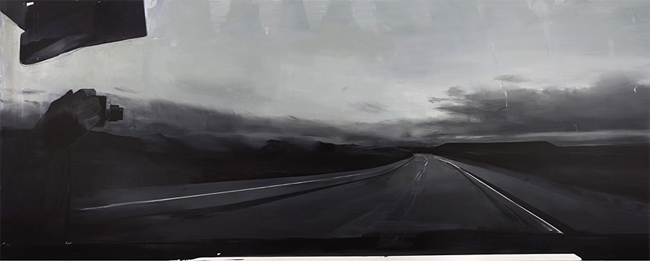
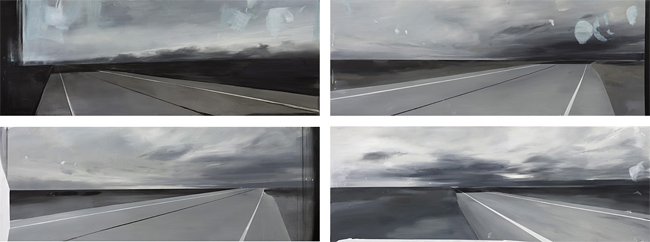
…This sort of travel creates its own peculiar type of event and innervation, so it also has its own special form of fatigue. … The defibrillation of the body overloaded with empty signs, functional gestures, the blinding brilliance of the sky, and somnambulistic distances, is a very slow process. Things suddenly become lighter, as culture, our culture, becomes more rarified. The only question in this journey is: how far can we go in the extermination of meaning? …This moment of vertigo is also the moment of potential collapse. Not so much from the tiredness generated by the distance and the heat, as from the irreversible advance into the desert of time.
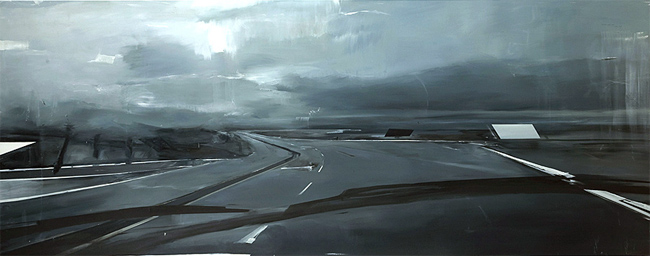
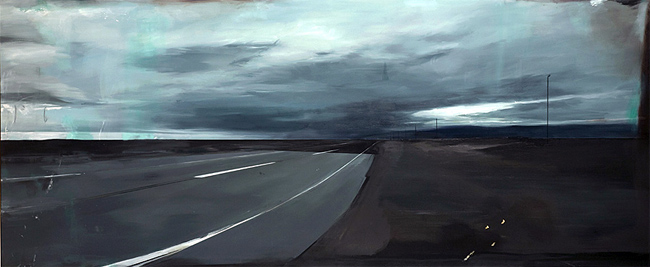
Quotes sourced from America, by Jean Baudrillard. View more of Klein’s work at her site.
Tags: Art, Painting
Posted in Uncategorized | No Comments »
Sunday, 24 January 2010
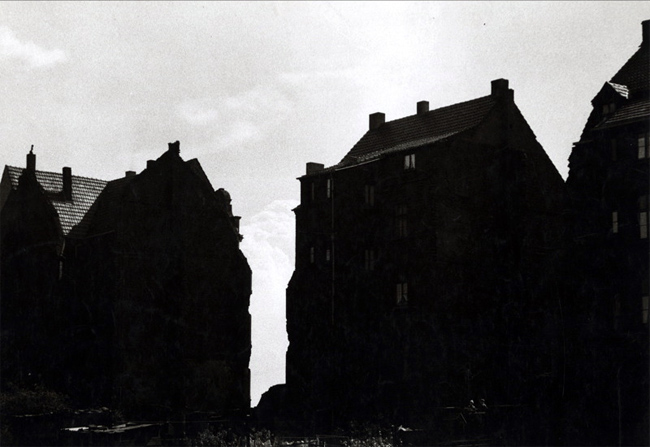
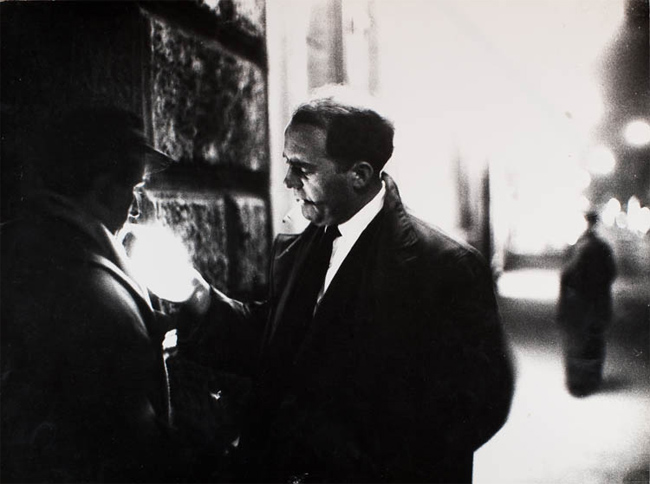
I rarely venture out much. I complain that Vancouver lacks a vibrant nightlife, yet deep down, I know that my voluntary incarceration is due to my poor social skills. It seems that, as the years pass, I have lost my humour. Few enjoy the company of a pessimistic, cynical man. I do not blame them. But I do miss those moments when the night comes alive, when the city undoes its starched-stiff collar and uncorks the wine bottle, when the records play and the skirts swirl to the rhythm…
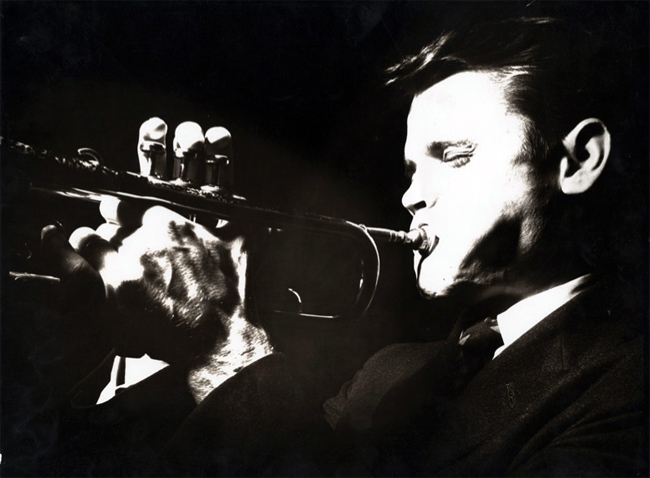
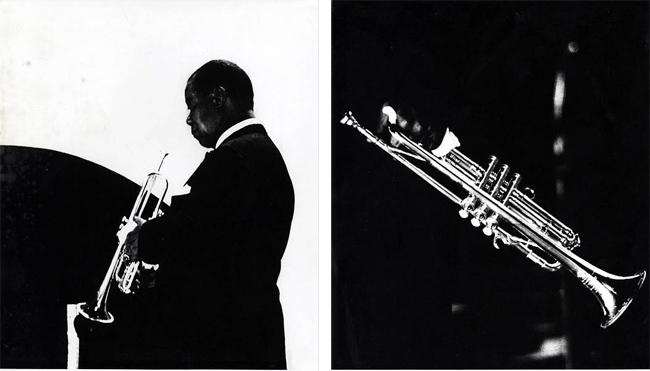
At the core of Chargesheimer’s photographic oeuvre, alongside portraiture and experimental photography, stands his Street Photography, depictions of street life in Cologne and other cities of post-war Germany… Chargesheimer portrays the everyday life of ordinary people from a radical subjective perspective without a trace of sentimentality. In close succession are found all the basic human emotions and behaviors: love and sadness, cares and conflicts, reflectiveness and high spirits, the dignity of age and the exuberance of youth.
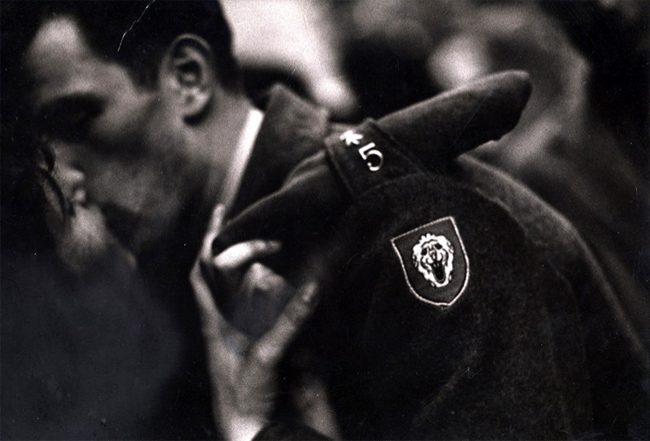
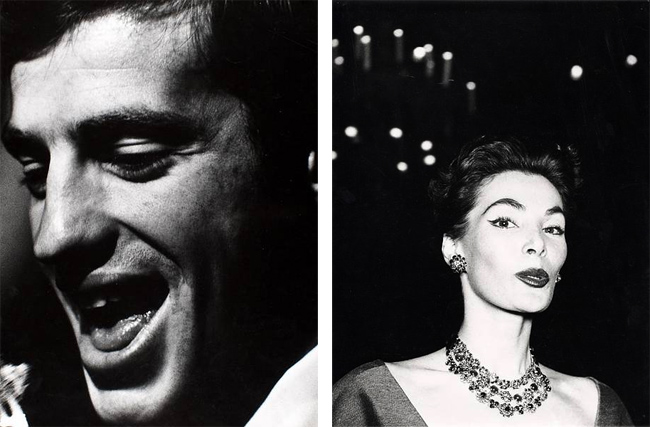
Additional text sourced from Priska Pasquer.
Tags: Photography
Posted in Uncategorized | No Comments »
Friday, 22 January 2010
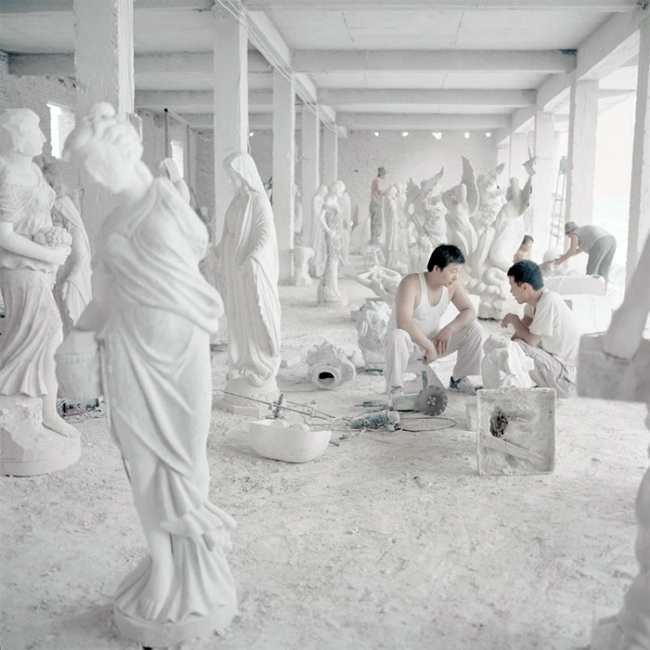
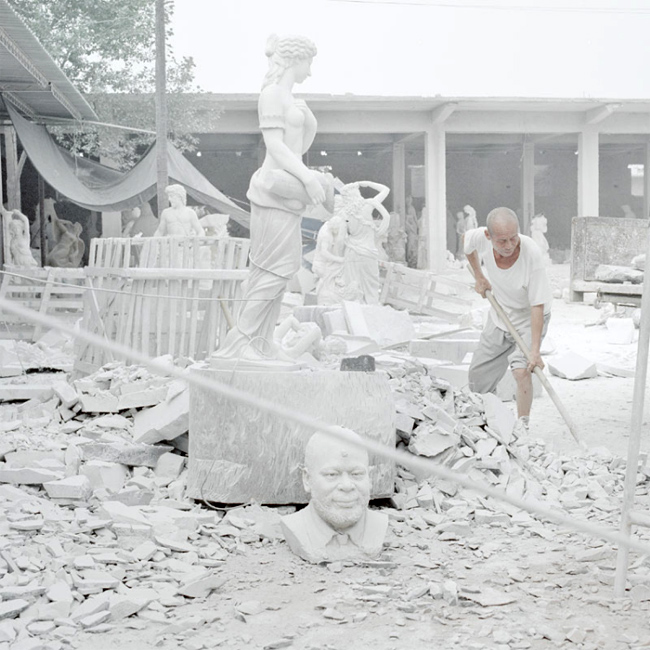
Dong Cheng, in China, is a village where every commercial activity turns around the reproduction of… famous sculptures. The creators of these “fakes” assume a marginal position and then almost disappear behind the “real” authors that they copy… [But] what is “fake”? Couldn’t we define these people [as] “artists”? Aren’t the hands and the craft of these living sculptors, who are fullfilling a very physical and tangible job, making these objects?
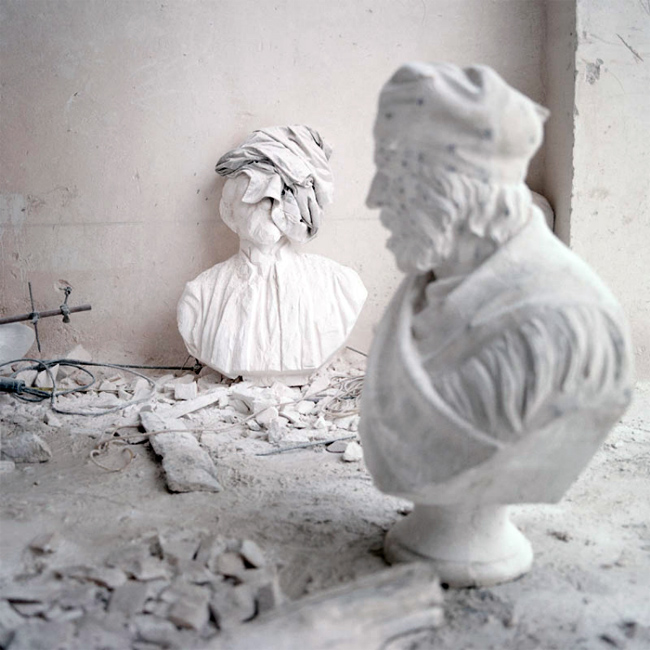
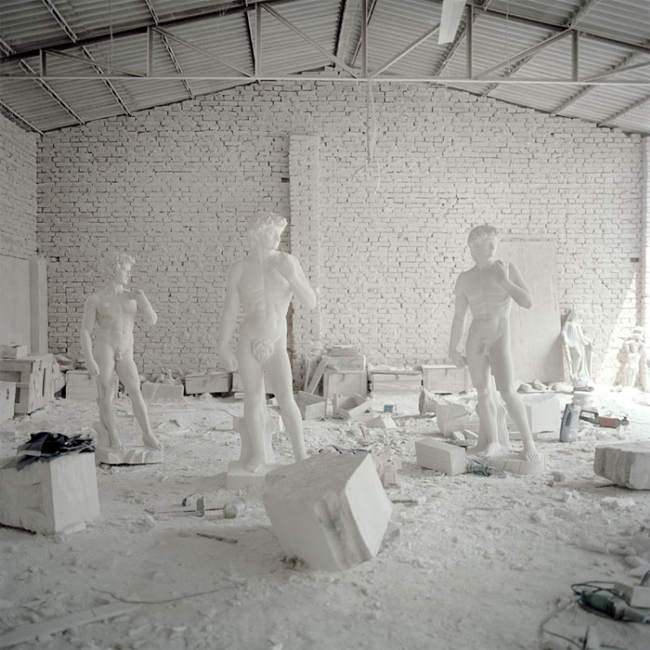
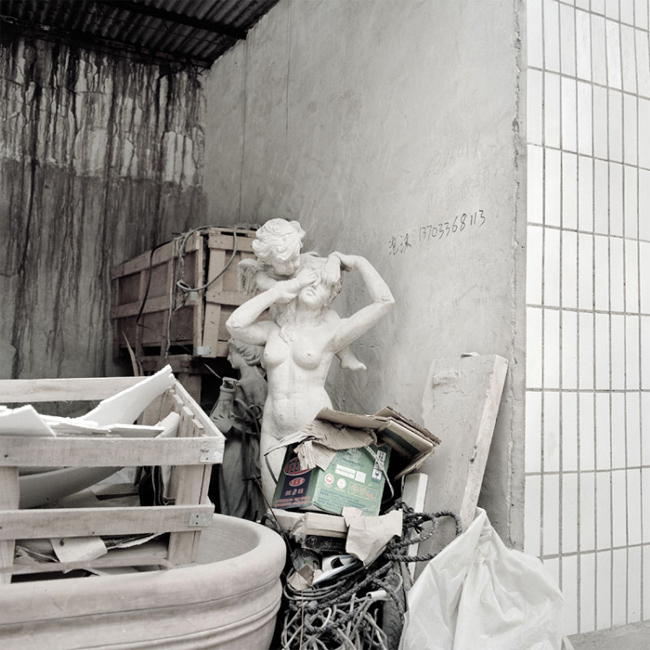
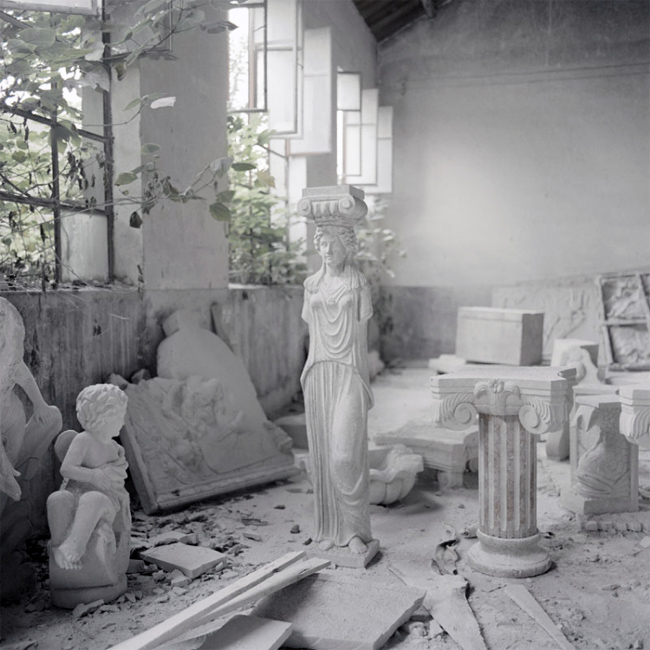
Introductory text sourced from Artist’s Statement. Please visit Goia’s site to view more work.
Tags: China, Photography, Sculpture
Posted in Uncategorized | No Comments »
Wednesday, 20 January 2010
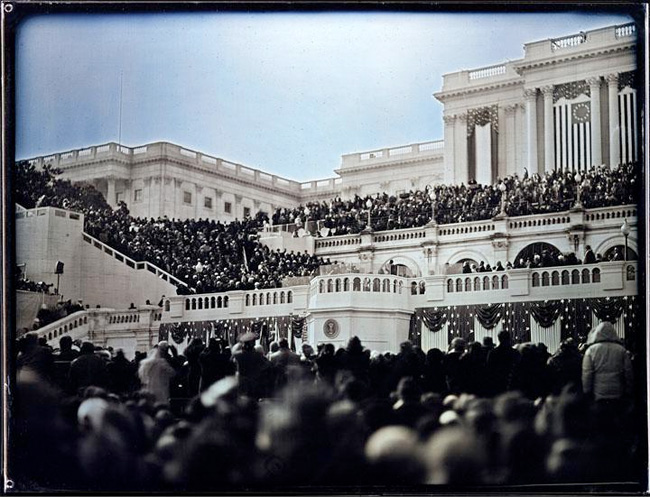
“… For we know that our patchwork heritage is a strength, not a weakness. We are a nation of Christians and Muslims, Jews and Hindus — and non-believers. We are shaped by every language and culture, drawn from every end of this Earth; and because we have tasted the bitter swill of civil war and segregation, and emerged from that dark chapter stronger and more united, we cannot help but believe that the old hatreds shall someday pass; that the lines of tribe shall soon dissolve; that as the world grows smaller, our common humanity shall reveal itself; and that America must play its role in ushering in a new era of peace…”
Daguerreotype of Barack Obama’s inauguration by Jerry Spagnoli.
Tags: Photography, Tribute
Posted in Uncategorized | No Comments »
Tuesday, 19 January 2010
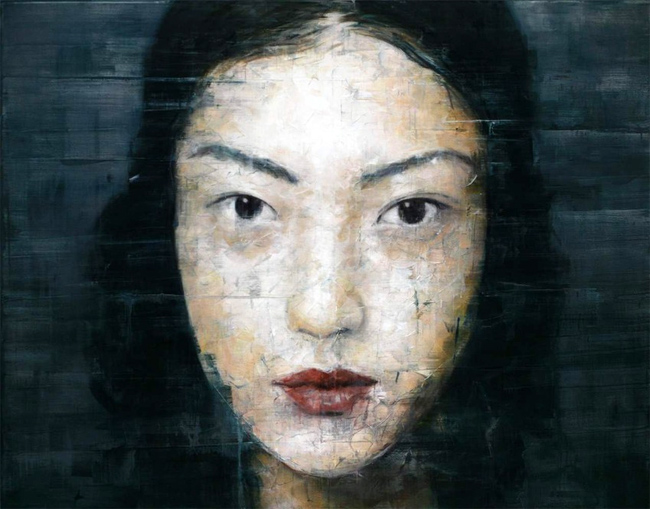
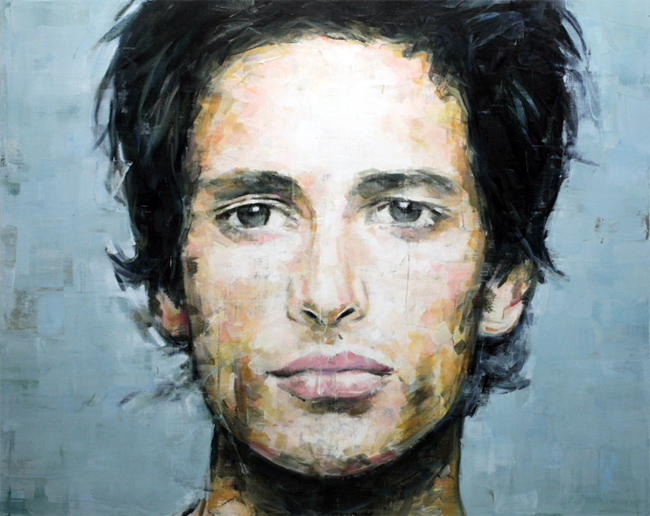
I have a rather poor image of myself. My insatiable desire to tweak all that is around me to deemed perfection long ago deterred me from having my photograph taken (the one of me on this website is just about the only one I have taken in the past few years). The camera could, and would, document my every flaw and reveal all my vulnerabilities. Yet, as shy as I am, the inquisitive part of me wants to know what others perceive me to be. Would a portraitist be able to capture my soul behind this ghastly mask? More importantly, would I be able to see past the physical grotesqueness to peer into my own soul?
Perhaps one day I will have the courage. Perhaps…
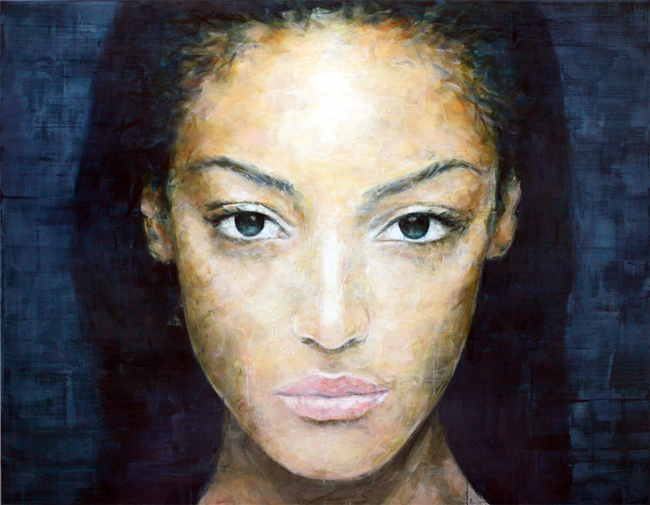
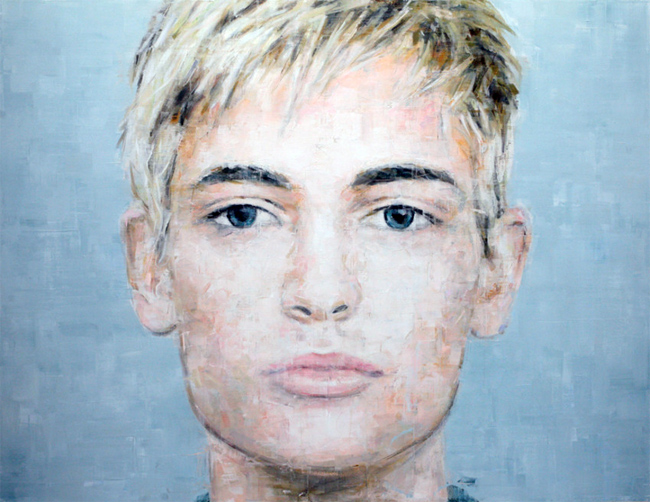
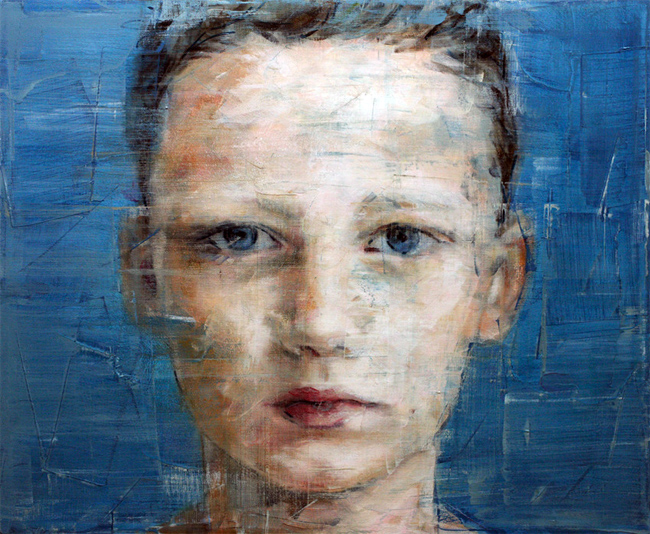
Portraits by Harding Meyer.
Tags: Art, Painting
Posted in Uncategorized | No Comments »
Tuesday, 19 January 2010
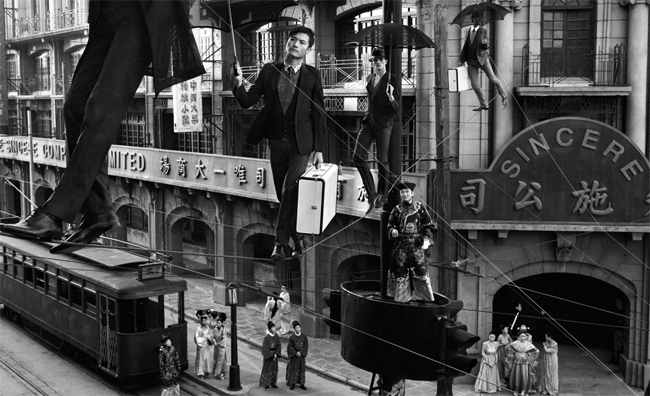
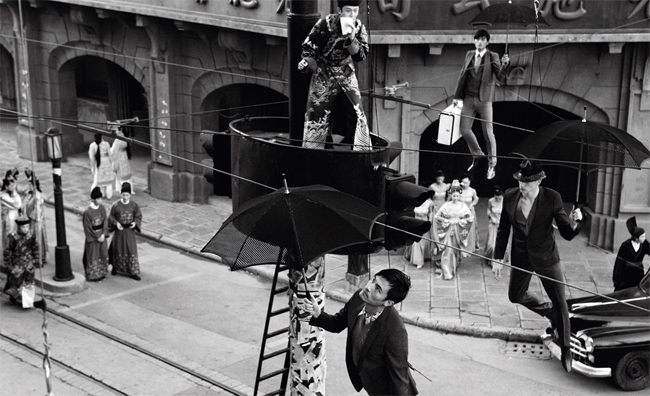
I have only watched a handful of silent films in my life. Although I appreciated the experience of ‘witnessing’ the birth of cinema, I have never been enamoured with the idea. It always lacked a certain spark that could not be conveyed without sound. I could never put the series of motions to the narrative. As a result, silent movies always seemed rather esoteric. This short film by Yang Fudong, titled ‘First Spring’, for Prada, is really not much different. In fact, the acting is rather questionable. However, he has managed to capture a surreal, fantasy dream-like journey, weaving together light and shadows, shape and textures, and a smattering of Magritte to create visually striking frames. This is a silent film full of wondrous curiosities, leaving you questioning the future, perhaps anticipating the endless possibilities?
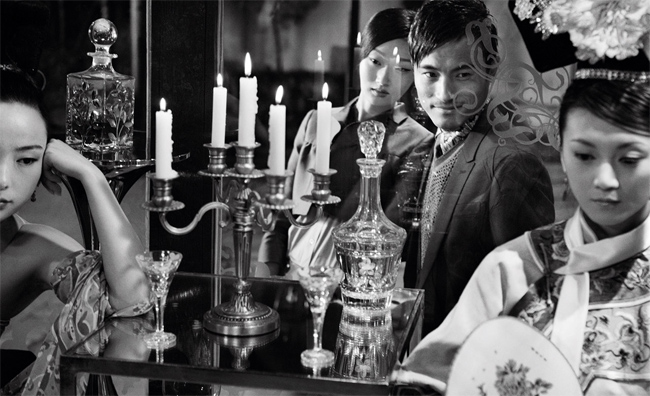
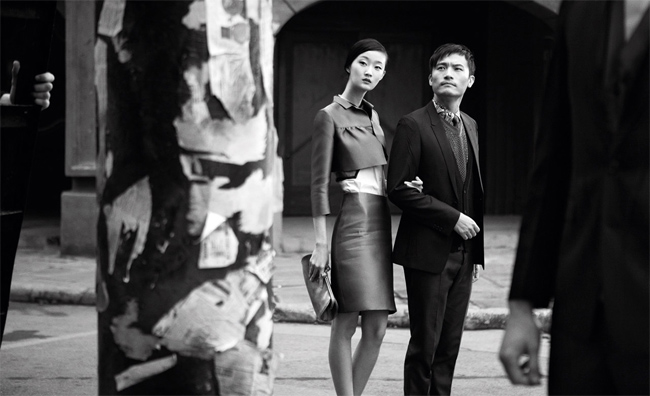
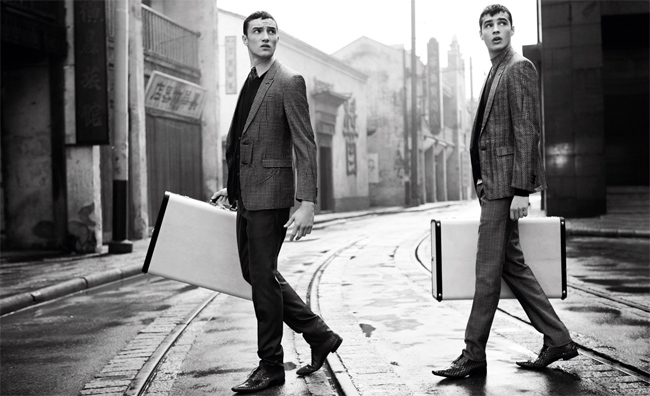
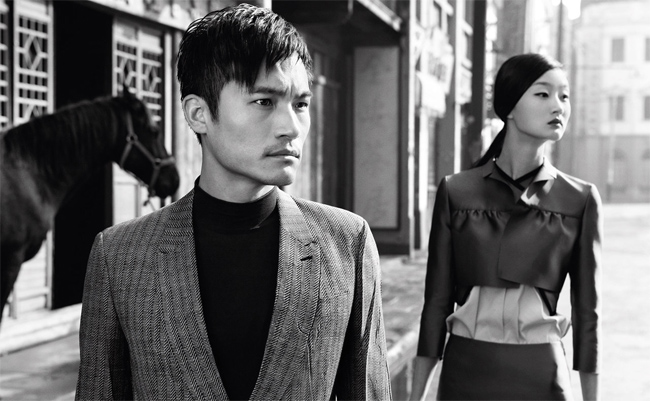
Watch the short film at Prada.
Tags: Art, Fashion, Film, Photography
Posted in Uncategorized | No Comments »



























































